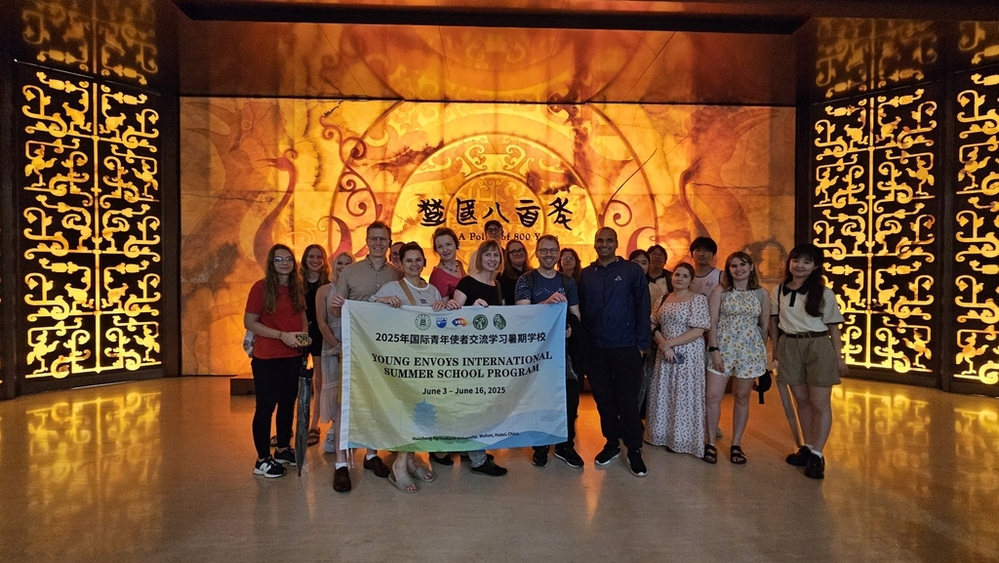Our university was represented by:
- mgr Inez Masiarek (University of Lodz Doctoral School of Exact and Natural Sciences),
- Weronika Biela, Natasza Wiertek-Płoszaj (Faculty of Biology and Environmental Protection, major: Biology),
- Julia Cholewa, Kinga Ciarka and Maria Podsiadło (Faculty of Biology and Environmental Protection, major: Biotechnology),
- Kinga Cmiel (Faculty of Biology and Environmental Protection, major: EcoCity),
- Aleksandra Góralczyk (Faculty of Biology and Environmental Protection, major: Microbiology).
The participants were selected in a faculty competition coordinated by dr hab. Marcin Kiedrzyński, Associate Professor at the University of Lodz and Dr Aamir Khan (Department of Biogeography, Paleoecology and Nature Conservation).
The school curriculum was diverse and dynamic. Lectures given by professors from HZAU and partner universities from Europe, Asia and North America covered issues in the field of plant phylogenetics and genomics, epigenetics, bioengineering, ecotoxicology, as well as strategies for sustainable management of natural resources. Practical classes were held in modern HZAU laboratories. There were also workshop sessions developing soft skills. As part of study trips, the participants visited biotechnology companies closely cooperating with HZAU.

The Summer School participants had the opportunity to participate in a bilateral Polish-Chinese scientific symposium, in which papers were presented by professors from HZAU and employees of our faculty: Dr Anna Wyrwicka-Drewniak (Department of Plant Physiology and Biochemistry), dr hab. Tomasz Kowalczyk (Department of Molecular Biotechnology and Genetics), dr hab. Marcin Kiedrzyński, Associate Professor at the University of Lodz (Department of Biogeography, Paleoecology and Nature Conservation), Vice-Dean for Internationalisation, dr hab. Aneta Balcerczyk, Associate Professor at the University of Lodz and dr hab. Edyta Kiedrzyńska, Associate Professor at the ERCE PAS, representing the European Regional Centre for Ecohydrology PAS and the UNESCO Chair of Ecohydrology and Applied Ecology. The stay of the representatives of the Faculty of Biology and Environmental Protection and ERCE PAN in Wuhan was an opportunity to talk about the further development of student exchange programmes and scientific cooperation with HZAU.
However, the Summer School is not just about learning. The organisers also took care of a rich historical and cultural programme. The students visited the most important monuments and institutions in Wuhan – the famous Yellow Crane Tower and the Hubei Provincial Museum. They also took part in workshops on the Chinese art of flower arrangement "hua dao", which literally means "the way of flowers", tea ceremony and tried local specialties.
Source: dr hab. Marcin Kiedrzyński, Associate Professor at the University of Lodz, Dr Aamir Khan, Department of Biogeography, Paleoecology and Nature Conservation, Faculty of Biology and Environmental Protection, University of Lodz
Edit: Kamila Knol-Michałowska, Promotion Centre, Faculty of Biology and Environmental Protection, University of Lodz
